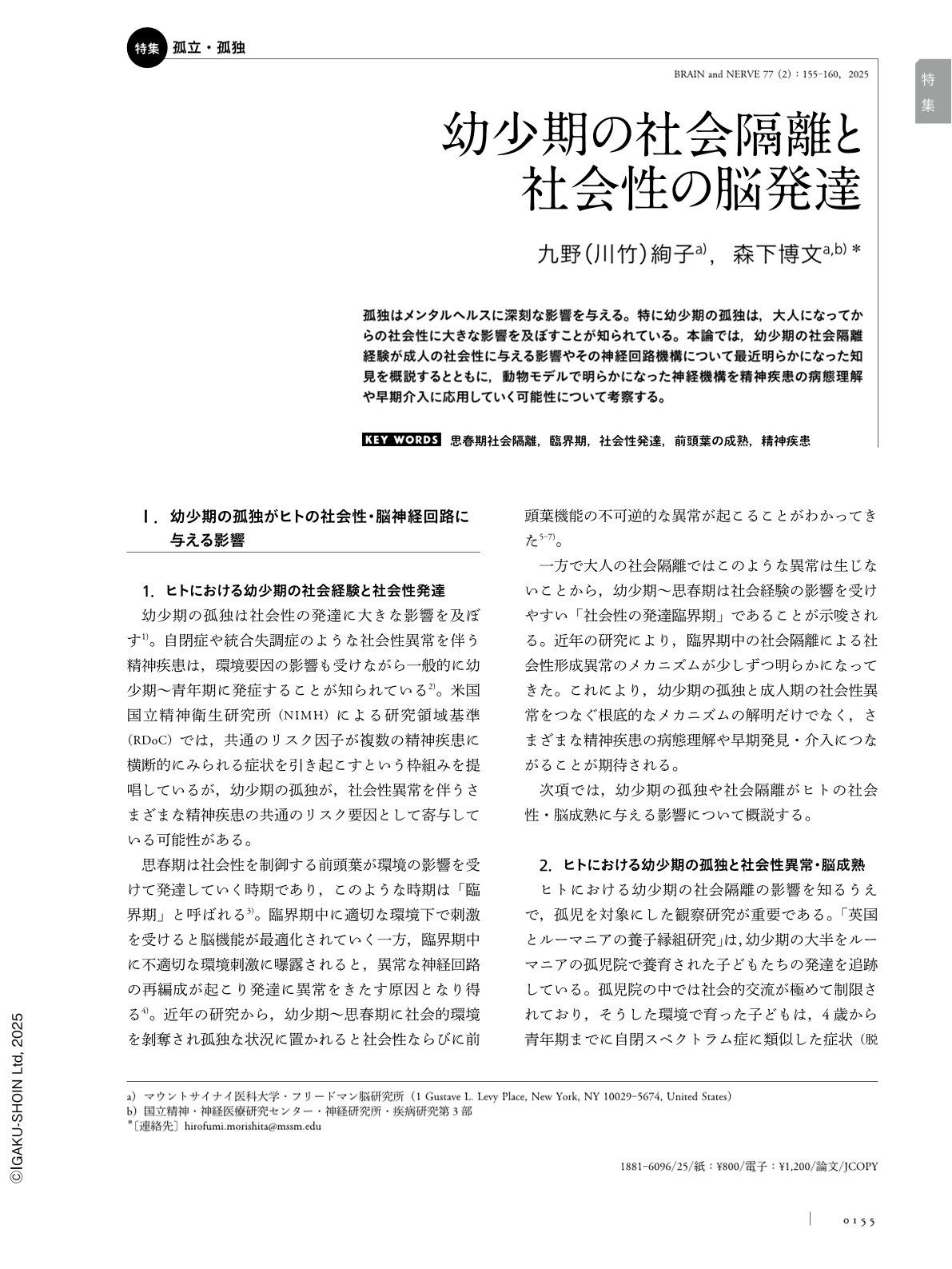Japanese
English
- 有料閲覧
- Abstract 文献概要
- 1ページ目 Look Inside
- 参考文献 Reference
孤独はメンタルヘルスに深刻な影響を与える。特に幼少期の孤独は,大人になってからの社会性に大きな影響を及ぼすことが知られている。本論では,幼少期の社会隔離経験が成人の社会性に与える影響やその神経回路機構について最近明らかになった知見を概説するとともに,動物モデルで明らかになった神経機構を精神疾患の病態理解や早期介入に応用していく可能性について考察する。
Abstract
Loneliness has a profound impact on mental health, and childhood loneliness is particularly detrimental to social development. In mice, juvenile social isolation disrupts adult social investigation and proper functioning of the prefrontal cortex. However, adult social isolation does not induce major social deficits, suggesting the existence of “social critical period.” This critical period refers to the developmental window during which the brain exhibits high experience-dependent plasticity, leading to permanently altered wiring. Inappropriate environmental exposure during this critical period can cause lifelong abnormal neural circuit reorganization and atypical development. Clarification of the mechanisms underlying typical social development or aberrant formation of sociability during the critical period can enhance our understanding of the pathophysiology of various psychiatric disorders and pave the way for early detection and intervention. In this review, we present recent evidence from cross-species studies of the effects of juvenile social isolation on the maturation of social processing and the frontal cortex. Furthermore, we discuss how we can identify optimal intervention timing or detect novel therapeutic targets for psychiatric disorders from the perspective of the socially critical period by promoting a mechanistic understanding of the effect of childhood loneliness in animal models.

Copyright © 2025, Igaku-Shoin Ltd. All rights reserved.


